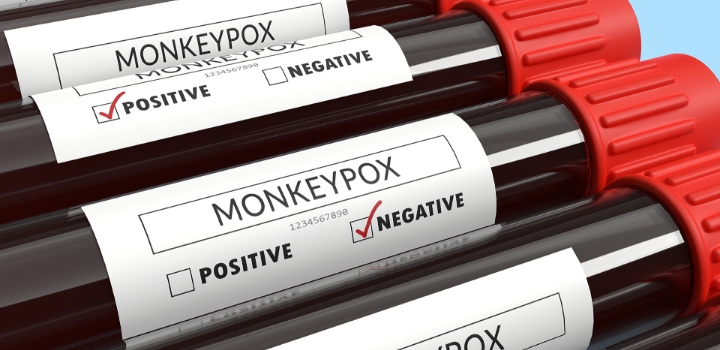15 simple monkeypox facts to keep in mind

We share a set of simple facts about monkeypox disease in one, easy-to-understand list. Find out why monkeypox is not a new disease and why its fatality rate is very low. Learn why it does not spread like the flu or COVID-19, how it's rarely fatal, why risk factors include having multiple sexual partners - and more.
Monkeypox is not a new disease
- Monkeypox is an infection caused by a virus in the same family as smallpox (monkeypox disease is caused by monkeypox virus). It was discovered in 1958 in Denmark when two outbreaks of a pox-like disease occurred in colonies of monkeys kept for research, so the name 'monkeypox'.
- It's not a new disease. We've known about it since 1958 and the disease and its treatment are well understood! The first human case was recorded in 1970. It's affected people in central and west Africa for decades. It's been controlled through simple measures like isolating infected people. There's currently a rise in global cases, outside of the African countries where the disease is usually found. And, this is not the first time monkeypox has been found outside of Africa.
A rare infection in humans, with low transmissibility
- The threat or risk to the general population is considered low.
- Monkeypox is generally a rare viral infection in humans.
- There's a very low likelihood of monkeypox becoming a global pandemic.
Infection risk is generally low
- You can't get it by being in the same room as an infected person.
- Person-to-person transmission only happens through very close contact - say, from kissing, cuddling, sexual contact with an infected person or through contact with materials contaminated by an infected person - like when sharing linen, clothes and other household items.
- So far, it's been most common in men who have sex with men.
- Risk factors include having multiple sexual partners.
Recovery rates are very good
- Infected people typically recover within two to four weeks. Most cases do not require hospital treatment.
- It's rarely fatal. We know of two monkeypox strains and it's the strain with a case fatality rate of 1% to 3% that's been detected globally.
- Treatment is supportive, as with most viral infections. Most human cases of monkeypox virus infection do not require any specific treatment and the disease resolves on its own.
- The best way to stop the transmission of monkeypox to others is for those who are infected to isolate! That's because an infected person is contagious from the time they develop a rash/lesions all the way through to the scab stage. Once all scabs have fallen off, a person is no longer contagious.
- Monkeypox virus is closely related to the virus that causes smallpox. So, having the smallpox vaccine can protect people from getting monkeypox. This vaccine is currently not available in South Africa. The WHO does not recommend mass vaccination campaigns a to limit the outbreaks, but rather contact tracing and isolation to limit the further spread of the infection.
- An antiviral agent developed for the treatment of smallpox has also been licensed for the treatment of monkeypox.
Read the National Institute for Communicable Diseases' (NICD's) FAQ on monkeypox virus.
Find out more
Missed our article explaining why the current monkeypox outbreak was declared a global public health emergency on 23 July? Catch up now.
Also read our summary of how monkeypox spreads, its symptoms, preventing infection and more.
Be sure to get your facts from reliable sources
Keep up to date on monkeypox:
- In South Africa, on the NICD website
- Globally: